Are you looking to streamline your logistics operations? A freight brokerage agreement can be the key to establishing clear expectations and fostering strong partnerships in the shipping industry. Whether you're a freight broker or a carrier, having a well-structured letter template can make a world of difference in ensuring smooth transactions. Join us as we dive deeper into the essentials of crafting a solid freight brokerage agreement that meets your needs!
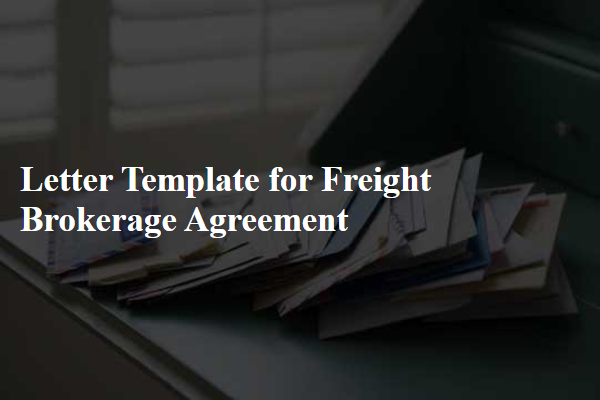
Parties Involved and Contact Information
In a freight brokerage agreement, key parties involved typically include the Freight Broker, a licensed entity responsible for arranging transportation services, and the Shipper, an individual or business looking to transport goods. Contact information should include full legal names, mailing addresses, phone numbers, and email addresses to ensure clear communication. For example, Company A (the Freight Broker), located at 123 Logistics Lane, Transport City, CA 90001, reachable at (555) 123-4567, and Company B (the Shipper), based at 456 Commerce Street, Shipping Town, NY 10001, contactable at (555) 987-6543. Each party's contact information is crucial for effective coordination throughout the shipping process.
Scope of Services and Responsibilities
Freight brokerage agreements outline essential services and responsibilities for connecting shippers to carriers. The scope of services typically includes arranging transportation of goods, negotiating freight rates, and providing logistics support throughout the shipping process. Brokers act as intermediaries, ensuring compliance with regulations such as the Federal Motor Carrier Safety Administration (FMCSA) guidelines in the United States. Responsibilities involve selecting reliable carriers, monitoring shipment progress, and managing documentation, such as bills of lading and insurance certificates. Effective communication is crucial for addressing any issues arising during transit and maintaining positive relationships with all parties involved, including shippers, carriers, and regulatory authorities.
Payment Terms and Conditions
Freight brokerage agreements outline crucial Payment Terms and Conditions that govern financial transactions between brokers and shippers. These agreements typically stipulate payment timelines, often requiring invoices to be submitted within 30 days post-delivery, adhering to industry standards. Payment methods can vary, with options including ACH transfers or credit card payments, ensuring flexibility for shippers. Late payment penalties may be enforced, sometimes involving fees of up to 1.5% per month, emphasizing the importance of timely payments. Additionally, conditions regarding prepayment or deposits, especially for high-value shipments, may be included to secure financial commitments from shippers. Transparent conditions regarding chargebacks or disputes further safeguard the interests of both parties. Ensuring clarity in these terms establishes trust and fosters long-term partnerships in the logistics industry.
Insurance and Liability Provisions
Insurance coverage is vital for freight brokerage agreements, ensuring protection for all parties involved in the transportation process. Typically, liability insurance amounts, such as a minimum of $1 million, are specified to cover any damages arising from negligence or actions of the freight broker. Moreover, cargo insurance, often covering up to $100,000, safeguards against loss or damage during transit. Indemnification clauses are included to clarify responsibilities, ensuring that the broker is not liable for incidents beyond their control, such as natural disasters or third-party negligence. Compliance with local regulations, including the Federal Motor Carrier Safety Administration (FMCSA) requirements, is paramount to maintain operational legitimacy and protect against potential lawsuits.
Termination and Amendment Clauses
A well-structured freight brokerage agreement incorporates specific termination and amendment clauses to ensure clarity and legal protection. Termination clauses outline the conditions under which either party may terminate the agreement, including scenarios such as breach of contract, non-payment (exceeding 30 days), or failure to comply with regulations such as the Transportation Safety Administration (TSA) guidelines. This section also stipulates a required notice period, commonly ranging from 15 to 30 days, prior to termination. Additionally, amendment clauses detail the procedures required for making any changes to the agreement, mandating that such amendments must be documented in writing and signed by both parties to avoid disputes. Including clear terms ensures that both the freight broker and the client have a mutual understanding of their rights and obligations, ultimately promoting a better working relationship.
Letter Template For Freight Brokerage Agreement Samples
Letter template of Freight Brokerage Agreement for Independent Contractors
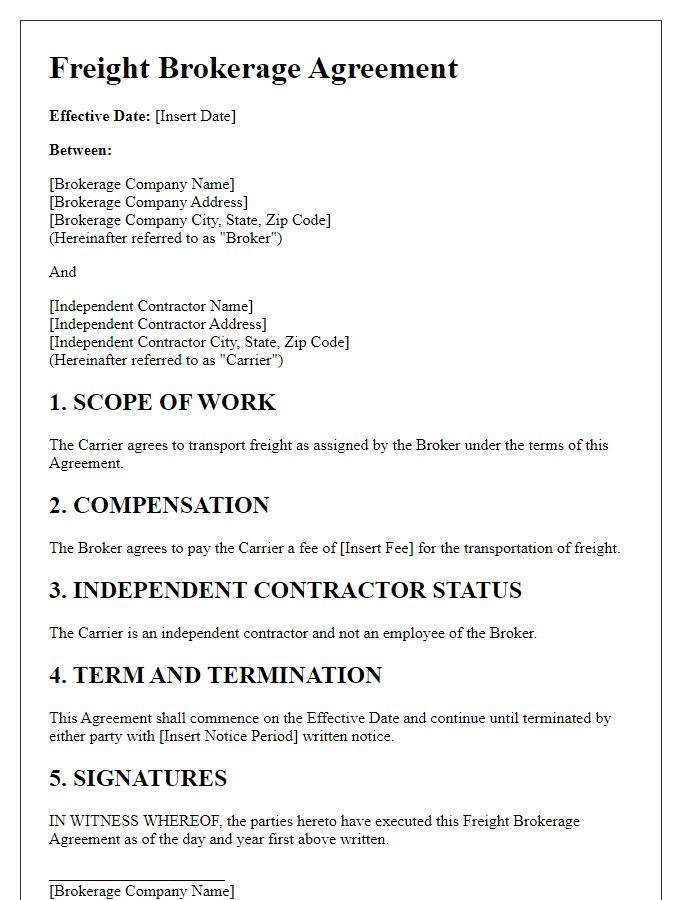
Letter template of Freight Brokerage Agreement for Digital Freight Marketplaces
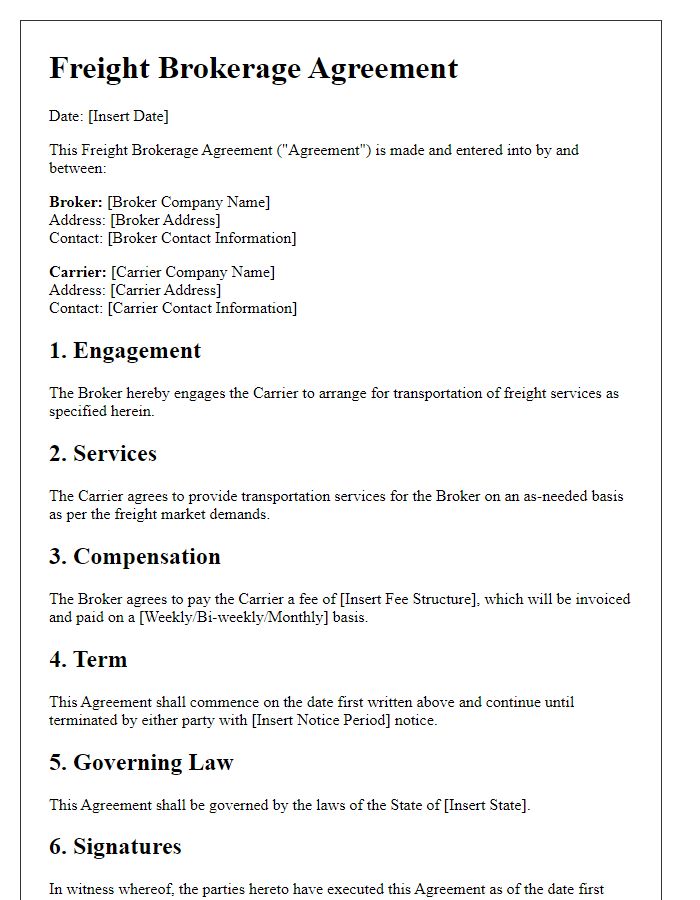
Letter template of Freight Brokerage Agreement for Small Business Transportation
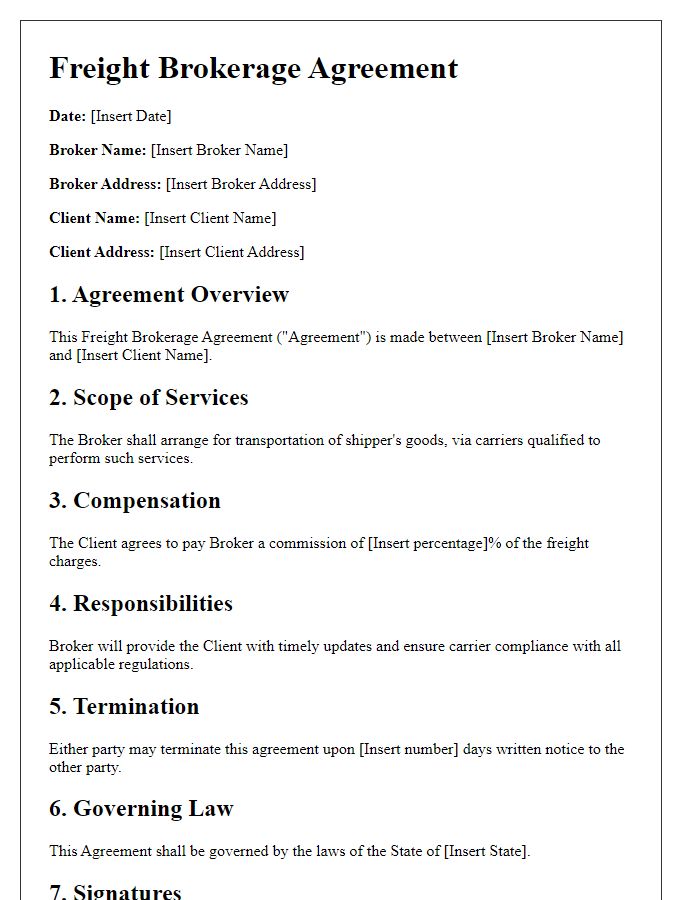
Letter template of Freight Brokerage Agreement for Large Scale Logistics Companies
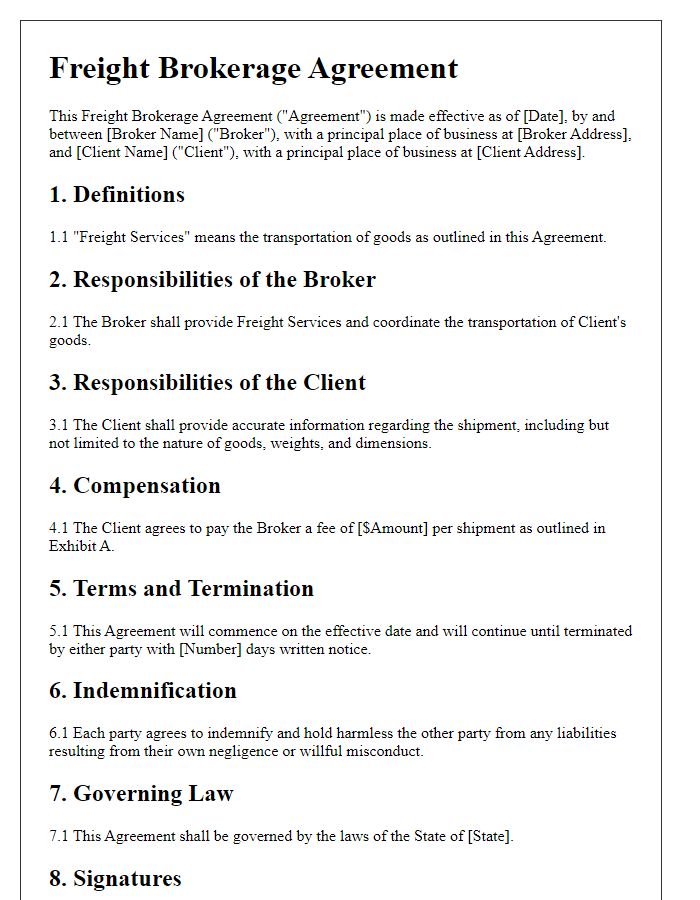
Letter template of Freight Brokerage Agreement for Cross-Border Transportation
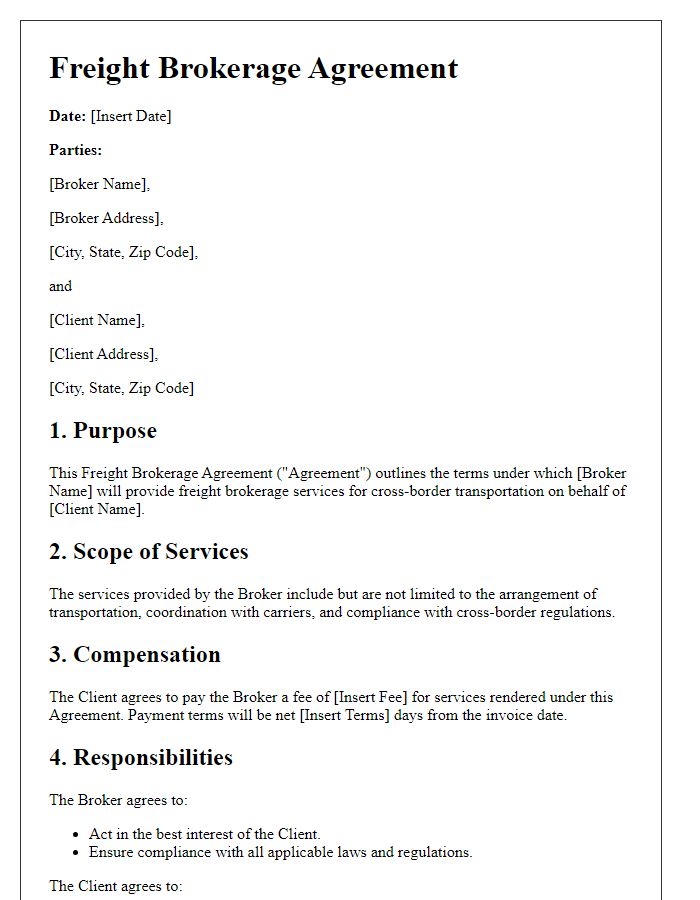
Letter template of Freight Brokerage Agreement for Intermodal Shipping Solutions
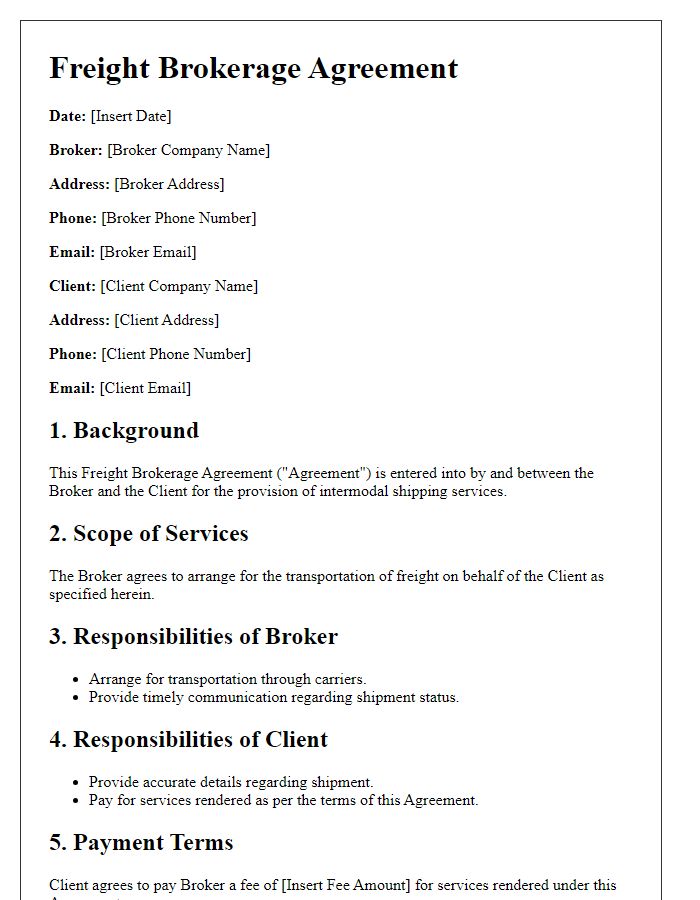
Letter template of Freight Brokerage Agreement for Temperature-Controlled Freight
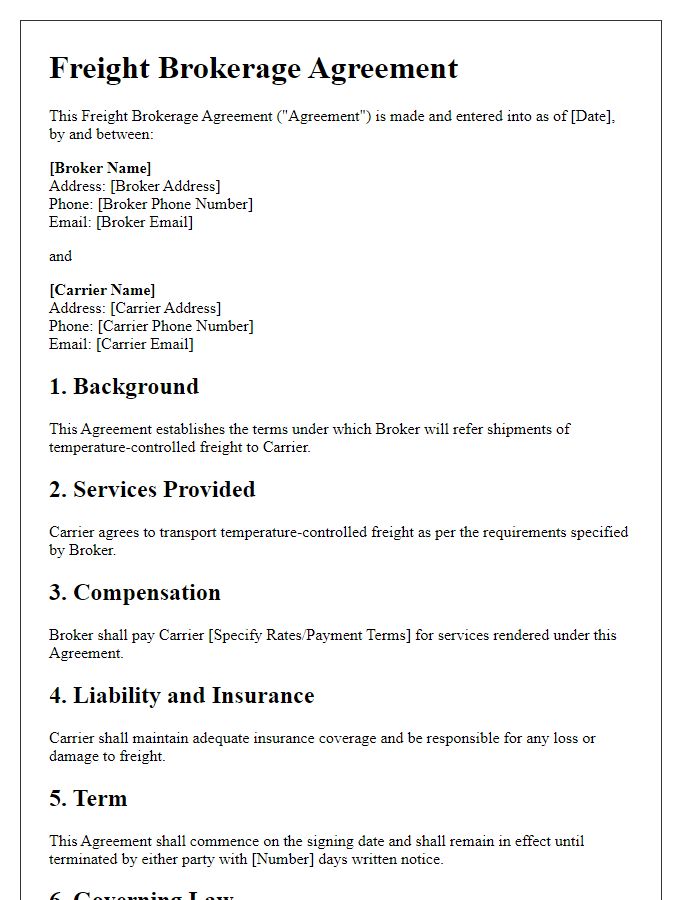
Letter template of Freight Brokerage Agreement for Expedited Freight Services
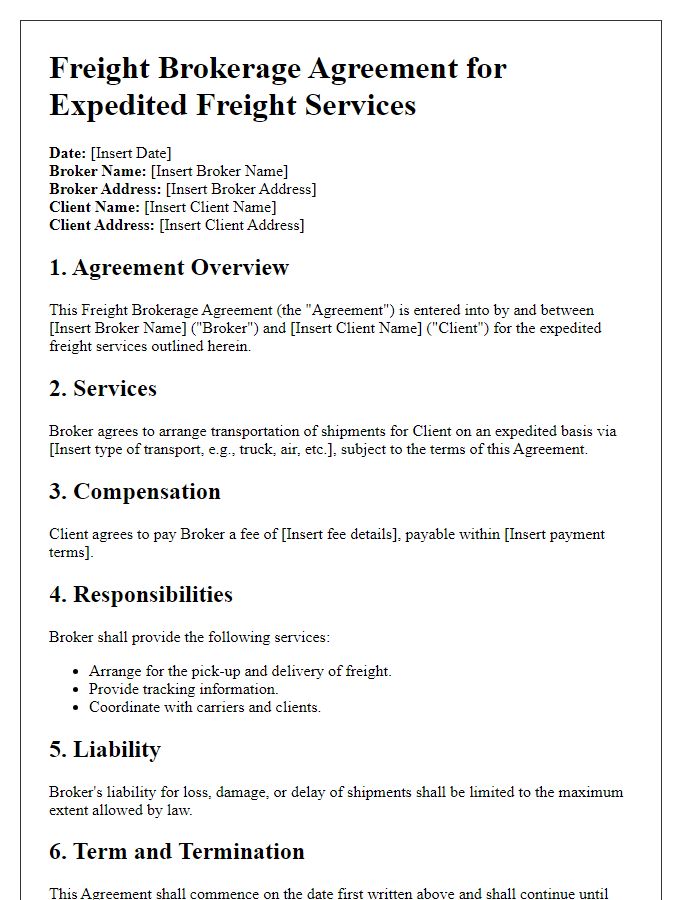
Letter template of Freight Brokerage Agreement for Niche Market Transport
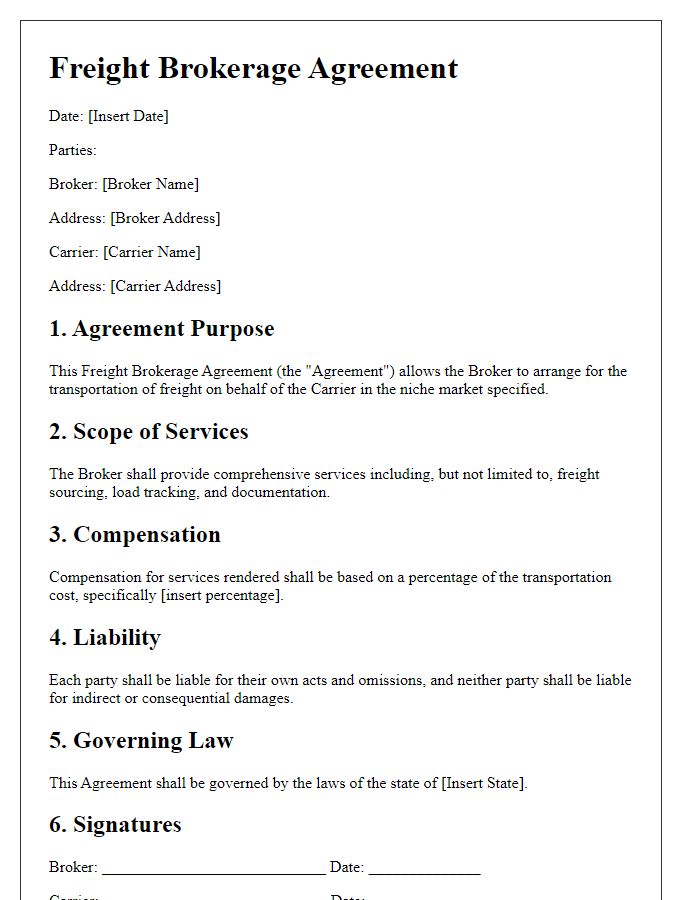

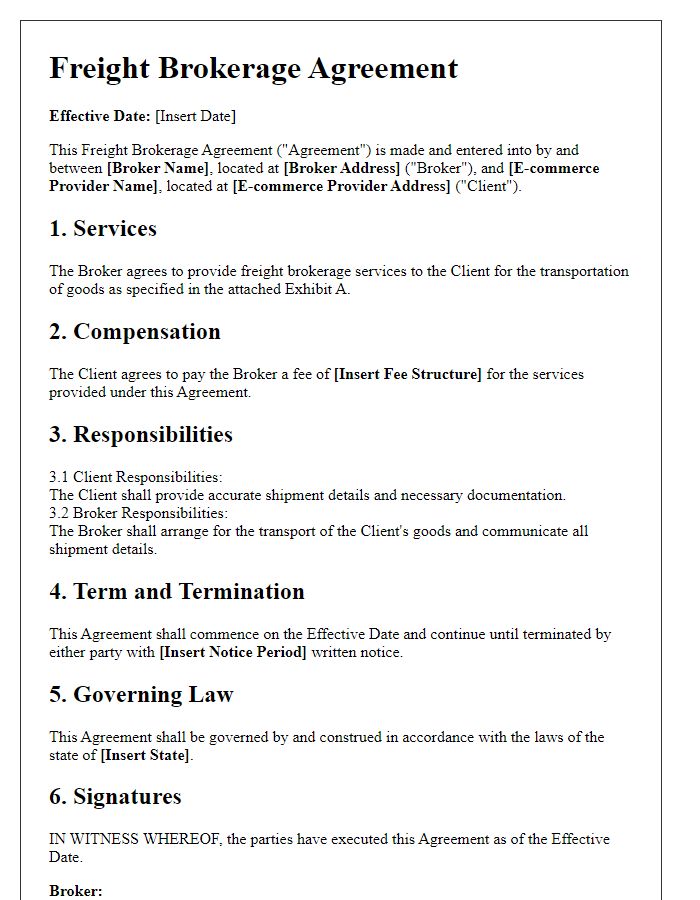


Comments